(Let me apologize in advance. This post is not about my classroom, nor is it particularly tech-y. Sometimes you just have to humor the voices in your head, even if they take you off-topic.)
(Actually, maybe that's only true for me.)
(In any case, ... um... yeah...)
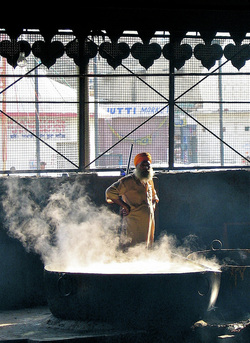
I may have mentioned this before, but I have a thing about India.
And Indian food.
And reading about it.
These are my most recent Indian literary culinary projects:
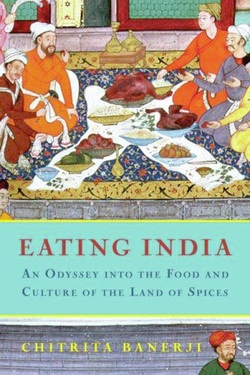
Chitrita Banerji
2007
304 pagesI
SBN-10: 1596910186
When I think back to the first time I ever had Indian food, sometime just after I got out of college in the mid-1980s, I remember being disoriented and profoundly unsettled.
And not just because it was the 1980s.
Nothing tasted the way I expected it to. What should have been savory dishes were sweet. Creamy dishes were highly spiced. (For that matter, even the desserts were highly spiced!) Nothing was the right color.
Twenty-five years later- and thoroughly ensnared by the seductive powers of Indian cooking - I'm starting to realize that perhaps I came into this with the right attitude; profound disorientation may be the only rational way to come to grips with the complicated, exotic, over-the-top, complicated, surprising, complicated nuances of hundreds of regional cooking traditions that crowd together under the umbrella of the term "Indian Food".
(Did I mention, complicated?)
In Eating India, Chitrita Banerji travels to dozens of regions in India and tries to untangle the interwoven threads of different cultures, languages, religions and castes that make up some of India's many, many, many food traditions.
She fails.
It's not her fault - it's all just way too...um...well, complicated.
Don't get me wrong - is is a fascinating, well-written book. Mrs. Banerji has a unique literary voice - at once feminine, gracious, irascible, matronly and curmudeonly. If anyone is qualified to even make this attempt, she is. But I suspect that the topic is beyond the abilities of any one scholar.
But now, I'm even more obsessed with Indian food than I was before (if that's even possible) and I'm determined to learn more about Gujerati cooking.
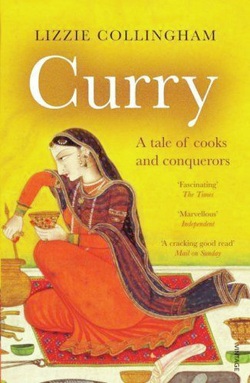
Lizzie Collingham
2007
352 pages
ISBN-10: 0195320018
India is very old.
No. Really old.
Seriously - think of the oldest, non-dinosaur-related thing you can imagine. Whatever it is, whenever it came into being, there was probably a group of Indians standing around arguing about it.
What I'm saying is that Indians (in one permutation or another) have been around a very, very long time.
And for all that time, they've been somewhat food-obsessed. They have designed elaborate food traditions and rigid rituals around preparing, serving and eating food. Then, often, they have completely disregarded those same protocols and borrowed extensively from any other culture they have come in contact with. (Provided, of course that the other guys had something worth borrowing. This is why you find good English beer in India, but not a lot of Spotted Dick.)
Lizzie Collingham spends several hundred pages leading the reader through the weird, complicated, marvelous (and sometimes even silly) history of the curry.
[See - even saying that is like stepping off a ledge into a pit of scorpions and whoopie cushions. The term "curry" is pretty much a colonial British invention and doesn't have a lot of meaning in India.
Except when it does.]
It takes Curry a while to find it's main point (though, it has to be said that its meandering is nothing short of fascinating), but when it does, it is this:
Anyone who gets on a high-horse about some Indian food or other not being "authentic" is full of it. Indian cuisine is in tremendous flux, and has been, since those very, very long-ago, almost-dinosaury days - too much flux to be betrayed by innovation or fads.
Louis Armstrong said that there are only two types of music - good music and bad music. I wonder how he felt about curry.
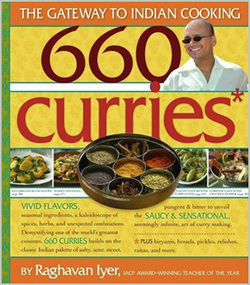
660 Curries
2008
809 pages
ISBN-10: 0761137874
This is a very good cookbook.
I could go on at great length about Raghavan Iyer's breezy, accessible writing style. (Each recipe has in introductory paragraph that can be summed up by: "I've got this friend. He/She is an AMAZING cook. He/She cooks this. You should go cook it now.) but I won't.
I could talk about my anthropomorphication of some of the recipes. ("So, Subudana Vada, my old nemesis... We meet again, but this time the advantage is MINE!")
[Actually, my relationship with Subudana Vada - a bright green, deep-fried tapioca fritter - was more of a co-dependent, enabling one: "No, honestly - it's really a good curry. You just don't know it like I do. It will change; just give it time... Okay, it didn't change - but the fault must be mine."]
I could talk about my new and complicated relationship with fresh fenugreek leaves, and with Omar, the guy at the Pakistani grocery store, who sells them to me.
But I won't.
Instead, I'll point out:
A) 40 down, 620 to go.
B) My new - and frankly liberating - custom of writing notes in my now stained, broken-spined and heavily annotated copy of 660 Curries.
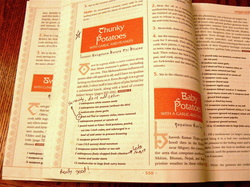
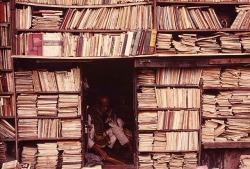
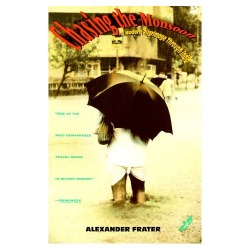
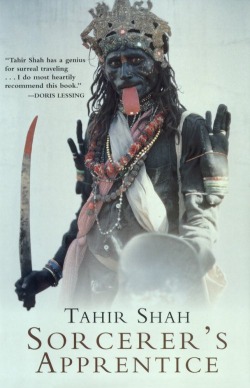
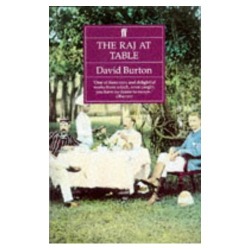
 RSS Feed
RSS Feed